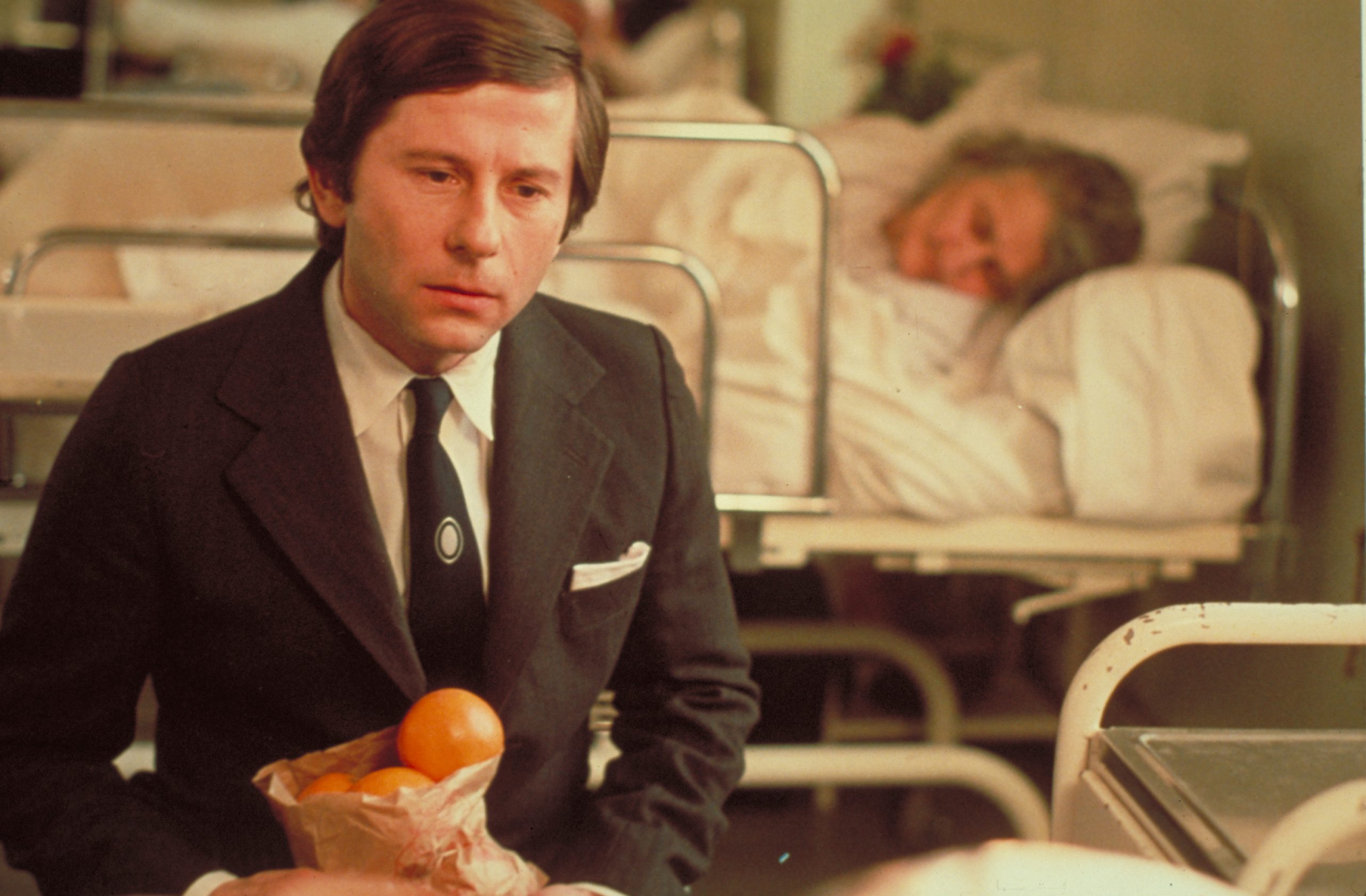Special Screenings: Film meets Philosophy
![[ 2&6/6] Ballad of Piargy (2022)](https://philosophicalfilmfestival.mk/wp-content/uploads/2023/05/Ballad-of-Piargy_PIA03-1-1024x615.jpg)
[ 2&6/6] Ballad of Piargy (2022)
![[3/6] Touki Bouki (Journey of the Hyena, 1973)](https://philosophicalfilmfestival.mk/wp-content/uploads/2023/05/Touki-Bouki-01-1-1024x838.jpg)
[3/6] Touki Bouki (Journey of the Hyena, 1973)
![[6/6] Easy Rider (1969)](https://philosophicalfilmfestival.mk/wp-content/uploads/2023/05/RP_Easy_Rider_1_PFF2023-1024x562.jpeg)
[6/6] Easy Rider (1969)
![[7/6] The Tenant / Le Locataire](https://philosophicalfilmfestival.mk/wp-content/uploads/2023/05/RP_The_Tenant_PFF2023-1-scaled.jpg)
[7/6] The Tenant / Le Locataire
![[9/6] Raise Ravens / Cría Cuervos](https://philosophicalfilmfestival.mk/wp-content/uploads/2023/05/Cria-Cuervos.jpg)
[9/6] Raise Ravens / Cría Cuervos
-
![[ 2&6/6] Ballad of Piargy (2022)](https://philosophicalfilmfestival.mk/wp-content/uploads/2023/05/Ballad-of-Piargy_PIA03-1.jpg)
[ 2&6/6] Ballad of Piargy (2022)
Ivo Trajkov, SK/MK/CZ, 100’
Q&A with Ivo TrajkovIn the spring of 1939, the news was transmitted that in the small mountain village of Piargy, buried by an avalanche of snow just a few days ago, the Antichrist was born. The bishop demands that the statements of Ioanka, the only survivor of the disaster, is properly investigated in order to find out what really happened.
Love, passion, hope, sin, and punishment—these are the words that would best describe the atmosphere in Ivo Trajkov's latest film, a symbol of modern Sodom and Gomorrah. A visually sumptuous story based on a short story by the Slovak writer František Švantner, the film impresses with its originality and rarity in its approach to the subject. Through his brilliant black and white photography, he subtly captures an atmosphere of historical drama and is a mirror of the hypocrisy of morality, religion, and patriarchal tradition in society—equally relevant today as in the period immediately before the Second World War.
The Slovak-Macedonian-Czech co-production film "Ballad of Piargy" has participated in a number of international film festivals and won several awards, among others, at festivals in Buenos Aires, Brussels, the Montreal Independent Film Festival, etc.
-
![[3/6] Touki Bouki (Journey of the Hyena, 1973)](https://philosophicalfilmfestival.mk/wp-content/uploads/2023/05/Touki-Bouki-01-1.jpg)
[3/6] Touki Bouki (Journey of the Hyena, 1973)
Djibril Diop Mambéty, SN, 90’
Talk by Niall KennedyMori, a cowherd who rides a motorcycle decorated with a cow skull, and Anta, a university student, meet in Dakar. Alienated and dissatisfied with life in Senegal and Africa, they yearn to go to Paris and come up with various fraudulent schemes to get money.
With an unusual mix of surrealist and naturalistic elements, Djibril Diop Mambetti depicts the disillusionment in Senegal in the early 1970s, the period shortly after gaining the independence.
Although influenced by the French New Wave, Tuki Buki has an avant-garde sensibility characterized by dynamic rhythm, rich imagery, dark humor, unconventional editing, and a dissonant soundscape, which demonstrates Mambetti's intention to tell African stories in new ways.
The film was screened at the Cannes Film Festival in 1973. where it won the International Critics Award, and at the Moscow International Film Festival in the same year, where it won the Special Jury Prize.
-
![[6/6] Easy Rider (1969)](https://philosophicalfilmfestival.mk/wp-content/uploads/2023/05/RP_Easy_Rider_1_PFF2023.jpeg)
[6/6] Easy Rider (1969)
Dennis Hopper, US, 96’
Introductury Lecture by Eliabeta ShelevaAfter making money selling cocaine, Wyatt and Billy take a long motorcycle ride from Los Angeles to New Orleans. Throughout their journeys, they meet a variety of people, from well-meaning hippies to conservatives who challenge the non-conformist lifestyle.
This film is cited as the pinnacle of the counterculture in American cinema and a key achievement of the so-called New Hollywood, as well as one of the films that have acquired cult status. The soundtrack for the film consisted of works by popular bands of the time, such as The Band, The Byrds, and Steppenwolf; one song, 'Born to Be Wild', became a big hit.
The film was screened at the Cannes Film Festival and was then nominated for an Oscar for Best Original Screenplay and Best Actor in a Motion Picture (Jack Nicholson). In 1998, the film was designated for reservation by the Library of Congress as a work of cultural, historical, or aesthetic significance.
-
![[7/6] The Tenant / Le Locataire](https://philosophicalfilmfestival.mk/wp-content/uploads/2023/05/RP_The_Tenant_PFF2023-1-scaled.jpg)
[7/6] The Tenant / Le Locataire
Roman Polanski, FR, 126’, 1976
Talk by Zlatko Gjelevski"The Tenant" is a psychological thriller based on the novel of the same name by Roland Topor and is the last part of Roman Polanski's "The Apartment" trilogy, which includes "Repulsion" (1965) and "Rosemary's Baby" (1968).
Director Roman Polanski plays the main role, that is, a French citizen of Polish origin who moves into an apartment in an old building, where the neighbors look at him with suspicion and contempt. After discovering that the previous tenant in the same apartment jumped out of a window, Trelkowski becomes obsessed with the dead woman. He becomes paranoid, convinced that the neighbors are planning to harm him, and identifies himself with the woman who committed suicide.
The director Polanski also portrays the manifestations of evil in society and humanity in this film, and there are claims that with "The Tenant" he was even too aggressive towards the audience. The film was screened at the Cannes Film Festival.
-
![[9/6] Raise Ravens / Cría Cuervos](https://philosophicalfilmfestival.mk/wp-content/uploads/2023/05/Cria-Cuervos.jpg)
[9/6] Raise Ravens / Cría Cuervos
Carlos Saura, ES, 109’, 1976
Talk by Luis Martin AriasAt the time of the decline of Francisco Franco's dictatorship in Spain, 8-year-old Ana and her two sisters find refuge in their aunt's house and try to live with the loss of their mother and father. Anna rebels against her aunt's authoritarianism while simultaneously reliving memories of life with her mother and imagining that she is present.
The film received a Special Jury Prize at the 1976 Cannes Film Festival, where it premiered, it was a major success in Spain and worldwide, and was nominated for a César and a Golden Globe for Best Foreign Language Film. Anna Torrent, who plays the role of Anna, was already known at that time for her role in the 1973 film 'The Spirit of the Beehive“, which she filmed when she was 7 years old.


















